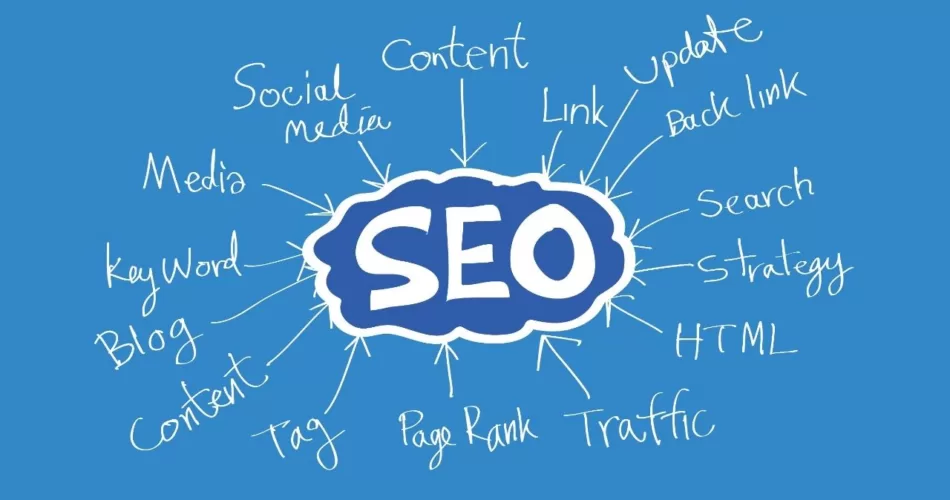Now, let’s talk a little bit about SEO. If you are a newbie website like us, we have information that you will definitely need. Because, before we opened this site, we did exactly this research. Now, we’re going to give you 10 tips to create an SEO-friendly article. So, without further ado, let’s move on to our tips. But, before we get to the tips, let’s underline one more thing. First, we will share our list of tips. Then, we will elaborate on the recommendations in this list.
10 Tips to write an SEO friendly article
- Use keywords in your title and throughout the content.
- Create high-quality, informative content that provides value to your audience.
- Optimize your images and videos by using relevant keywords in their file names and alt tags.
- Use header tags (H1, H2, H3, etc.) to organize your content and make it easier for search engines to understand.
- Use internal linking to help search engines understand the structure of your website and the relationships between your pages.
- Optimize your website for mobile devices to ensure that it loads quickly and is easy to navigate.
- Build high-quality backlinks from reputable websites to improve your website’s authority and search engine rankings.
- Use social media to promote your website and engage with your audience.
- Use analytics tools to track your website’s performance and identify areas for improvement.
- Stay up-to-date with the latest SEO best practices and algorithm updates to ensure that your website stays visible in search results.
It is important to remember that SEO is a long-term strategy and that consistent effort over time is necessary to achieve and maintain good search engine rankings. In addition, it is important to note that SEO is an ever-changing field and that the best practices that worked in the past may not be as effective today. With that said, let’s dive deeper into each of the tips above.
Let’s explain the 10 tips to write an SEO friendly article
Use keywords in your title and throughout the content.
Keywords are the phrases and terms that people use when they search for information online. By including relevant keywords in your title and throughout your content, you can help search engines understand what your webpage is about and make it more likely to show up in search results when people search for those keywords.
Create high-quality, informative content that provides value to your audience.
Search engines are designed to provide users with the most relevant and valuable information possible. By creating high-quality, informative content that provides value to your audience, you can help search engines understand that your website is a valuable resource for users.
Optimize your images and videos by using relevant keywords in their file names and alt tags.
Images and videos can be an important part of your website, but they can also make it more difficult for search engines to understand what your webpage is about. By using relevant keywords in the file names and alt tags of your images and videos, you can help search engines understand the context in which they are used and make it more likely that they will show up in image and video search results.
Use header tags (H1, H2, H3, etc.) to organize your content and make it easier for search engines to understand.
Header tags are used to organize the content on your webpage and make it easier for search engines to understand the structure of your website. By using header tags, you can help search engines understand the relationships between different sections of your content and make it more likely that they will show up in search results.
Use internal linking to help search engines understand the structure of your website and the relationships between your pages.
Internal linking is the process of linking to other pages on your website from within your content. By using internal linking, you can help search engines understand the structure of your website and the relationships between your pages, which can make it more likely that they will show up in search results.
Optimize your website for mobile devices to ensure that it loads quickly and is easy to navigate.
More and more people are using mobile devices to access the internet, and search engines are taking notice. By optimizing your website for mobile devices, you can ensure that it loads quickly and is easy to navigate, which can improve your website’s search engine rankings and make it more likely that users will stay on your website and engage with your content. This can be done by using responsive design, which automatically adjusts the layout of your website to fit the screen size of the device it is being viewed on.
Build high-quality backlinks from reputable websites to improve your website’s authority and search engine rankings.
Backlinks are links from other websites that point to your website. They are important for SEO because they indicate to search engines that other websites consider your content to be valuable and relevant. However, not all backlinks are created equal. High-quality backlinks from reputable websites carry more weight than low-quality backlinks from spammy or irrelevant websites. To build high-quality backlinks, focus on creating valuable and informative content that other websites will want to link to.
Use social media to promote your website and engage with your audience.
Social media is a great way to promote your website and engage with your audience. By sharing your content on social media, you can drive traffic to your website and get more people to see your content. Additionally, social media can also help you to build relationships with your audience, which can lead to more backlinks and greater visibility in search results.
Use analytics tools to track your website’s performance and identify areas for improvement.
Analytics tools like Google Analytics can provide you with valuable insights into how your website is performing and where you can make improvements. By tracking your website’s performance, you can identify which pages are getting the most traffic, where your visitors are coming from, and which keywords they are using to find your website. This information can help you to optimize your website and make it more effective in driving traffic and generating leads.
Stay up-to-date with the latest SEO best practices and algorithm updates to ensure that your website stays visible in search results.
SEO is an ever-changing field and search engines are constantly updating their algorithms to improve the quality of their search results. To ensure that your website stays visible in search results, you need to stay up-to-date with the latest SEO best practices and algorithm updates. This means staying informed about changes in the industry, testing different strategies, and making adjustments to your website as needed.
In conclusion, SEO is an important strategy for any website looking to improve its visibility and drive more traffic. By following these tips and staying up-to-date with the latest best practices and algorithm updates, you can optimize your website and improve your search engine rankings. Remember that SEO is a long-term strategy and consistent effort over time is necessary to achieve and maintain good search engine rankings.
See also:



